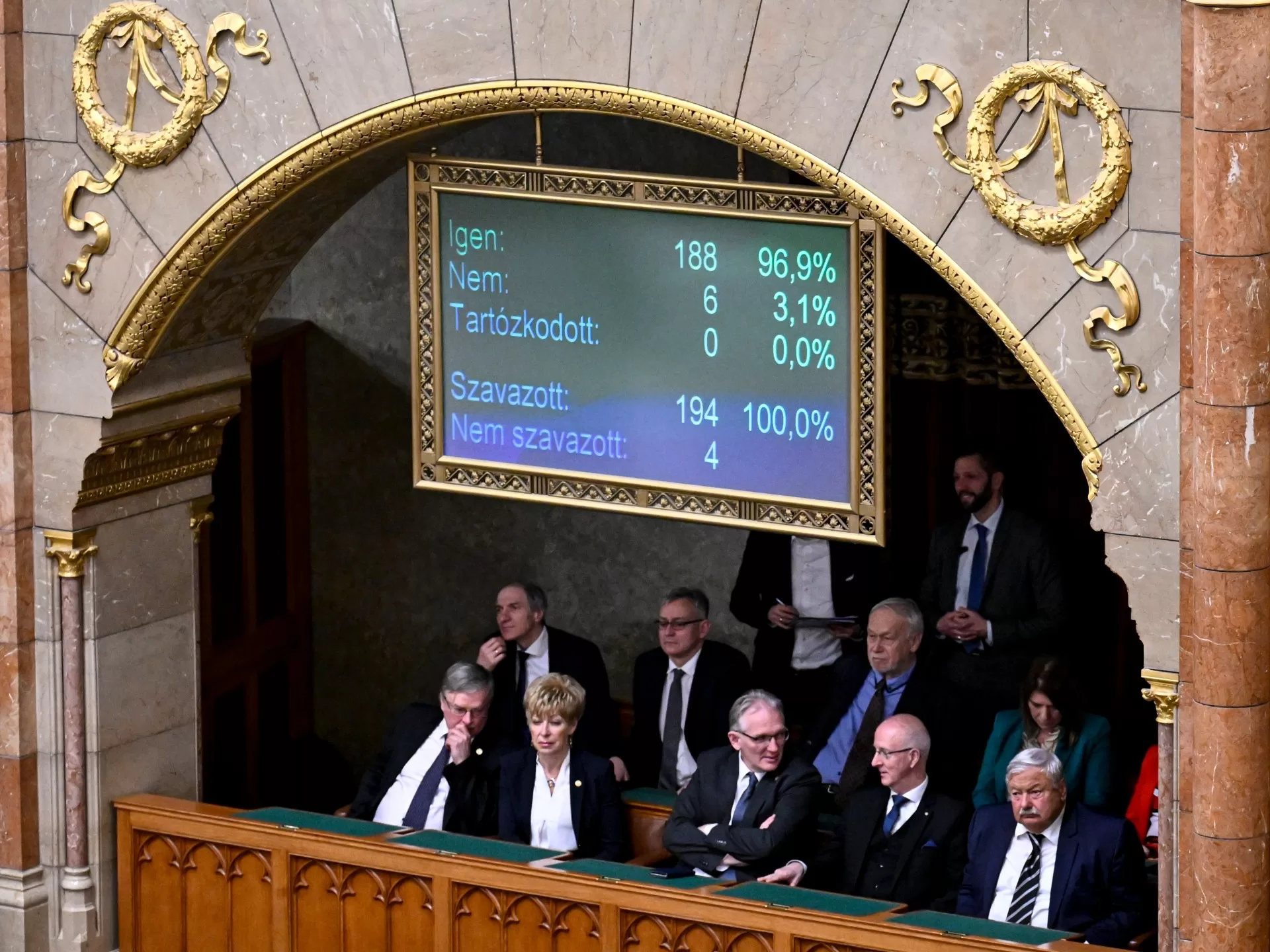Vote by Hungarian parliament ends more than 18 months of delays.
Monday’s vote, which passed with 188 members for and six against, was a culmination of months of wrangling by Hungary’s allies to persuade its nationalist government to lift its block on Sweden’s membership.
The government of Prime Minister Viktor Orban submitted the protocols for approving Sweden’s entry into NATO in July 2022, but the matter had stalled in parliament over opposition by governing party lawmakers.
Unanimous support among all NATO members is required to admit new countries, and Hungary is the last of the alliance’s 31 members to give its backing since Turkey ratified the request last month.
Swedish Prime Minister Ulf Kristersson called it “a historic day”.
“We stand ready to shoulder our share of the responsibility for NATO’s security,” Kristersson wrote on X.
NATO chief Jens Stoltenberg said the military alliance would soon be “stronger”.
“Now that all Allies have approved, Sweden will become the 32nd #NATO Ally,” the secretary-general wrote on X. “Sweden’s membership will make us all stronger and safer.”
Orban, a right-wing populist who has forged close ties with Russia, has said criticism of Hungary’s democracy by Swedish politicians had soured relations between the two countries and led to reluctance among lawmakers in his Fidesz party.
But the vote on Monday removed the final membership hurdle for Sweden which, along with neighbouring Finland, first applied to join the alliance in May 2022, just a few months after the start of Russia’s full-scale invasion of Ukraine.
Finland experienced fewer roadblocks in its membership application and joined NATO in April last year.
Addressing lawmakers before the vote on Sweden, Orban said: “Sweden and Hungary’s military cooperation and Sweden’s NATO accession strengthen Hungary’s security.”
Orban criticised Hungary’s European Union and NATO allies for placing increased pressure on his government in recent months to move forward on bringing Sweden into the alliance.
“Several people tried to intervene from the outside in the settling of our disputes [with Sweden], but this did not help but rather hampered the issue,” Orban said. “Hungary is a sovereign country. It does not tolerate being dictated by others, whether it be the content of its decisions or their timing.”
This month, a bipartisan group of United States senators visited Hungary and announced it would submit a joint resolution to the US Congress condemning Hungary’s alleged democratic backsliding and urging Orban’s government to immediately lift its block on Sweden’s transatlantic integration.
On Friday, Kristersson met with Orban in Budapest, where they appeared to achieve a reconciliation after months of diplomatic tensions.
After their meeting, the leaders announced the conclusion of a defence industry agreement that will include Hungary’s purchase of four Swedish-made JAS 39 Gripen jets and the extension of a service contract for its existing Gripen fleet.
Orban said the additional fighter jets “will significantly increase our military capabilities and further strengthen our role abroad” and will improve Hungary’s ability to participate in joint NATO operations.
“To be a member of NATO together with another country means we are ready to die for each other,” Orban said. “A deal on defence and military capacities helps to reconstruct the trust between the two countries.”
A presidential signature is needed to formally endorse the approval of Sweden’s NATO bid, which is expected within the next few days.
Sweden will then be invited to accede to the Washington Treaty and officially become NATO’s 32nd member.
